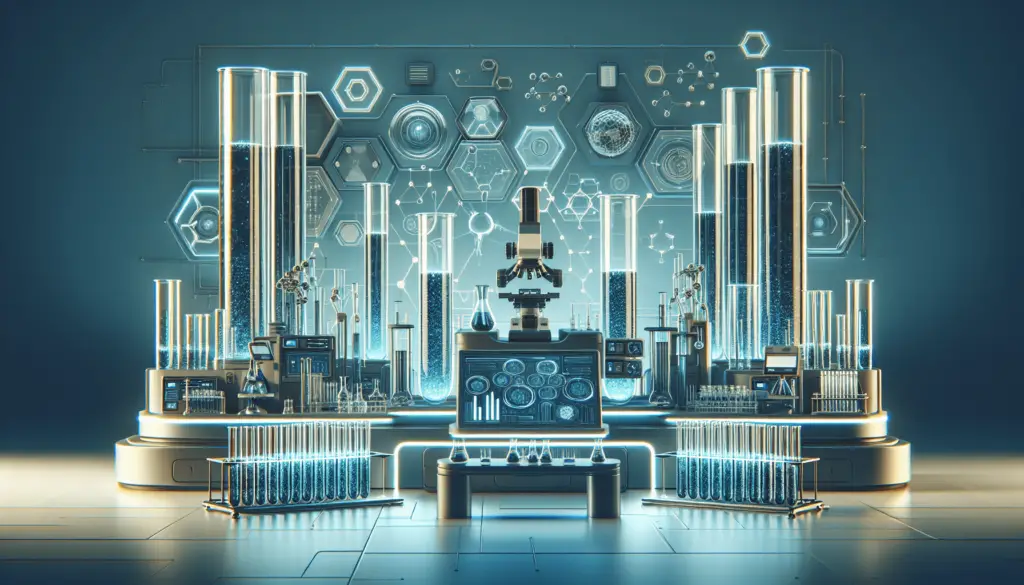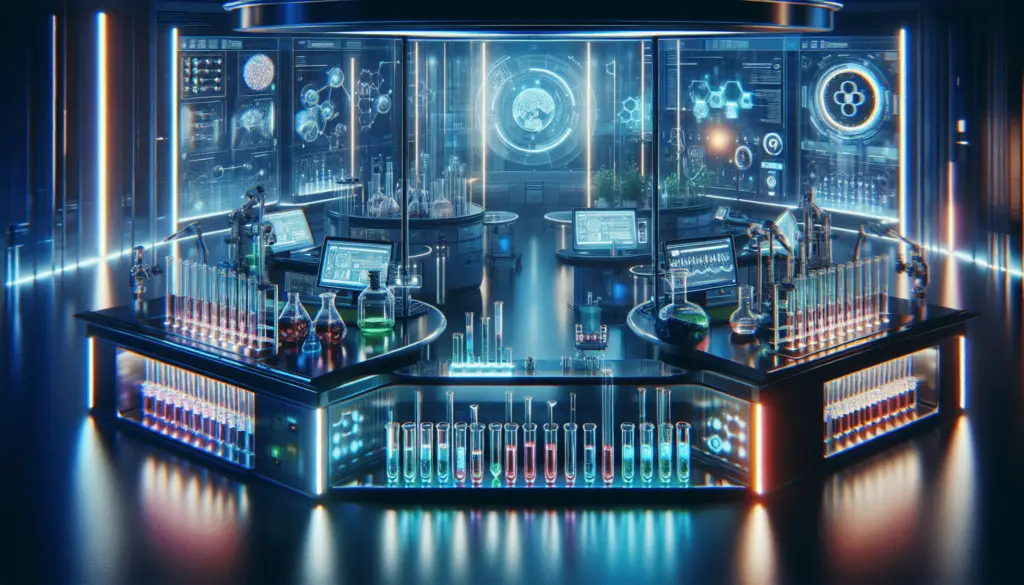Have you ever wondered about the future of prepping for sustainable living? In this article, we will explore how synthetic biology can play a crucial role in helping us prepare for a sustainable future. Let’s dive into the world of synthetic biology and its potential impact on prepping.

Understanding Synthetic Biology
Synthetic biology is a relatively new field that combines principles of biology, engineering, and computer science to design and construct new biological parts, devices, and systems. Essentially, it involves the engineering of biological systems for practical purposes. This innovative approach allows scientists to create biological systems that do not exist in nature, opening up a world of possibilities for sustainable living solutions.
How Synthetic Biology Works
At the core of synthetic biology is the idea of designing biological systems from scratch by assembling genetic components. Scientists can engineer cells to perform specific functions by introducing synthetic DNA into their genomes. This DNA can be designed to encode desired traits, such as enhanced productivity, resistance to disease, or improved environmental adaptability.
The Benefits of Synthetic Biology for Prepping
Synthetic biology holds immense potential for prepping for sustainable living. By harnessing the power of genetic engineering, we can create biological systems that are tailored to meet the challenges of a changing world. From producing sustainable food sources to developing bio-based materials, the applications of synthetic biology are endless.
Sustainable Food Production
One of the most promising applications of synthetic biology is in sustainable food production. By engineering crops to be more resilient to environmental stressors, such as drought or pests, we can ensure a stable food supply in the face of climate change. Additionally, synthetic biology can be used to create alternative protein sources, such as lab-grown meat, reducing the environmental impact of traditional animal agriculture.

Bio-Based Materials
Another exciting use of synthetic biology is in the development of bio-based materials. By designing microbes to produce biodegradable plastics, sustainable textiles, and renewable fuels, we can reduce our reliance on fossil fuels and minimize waste. These bio-based materials offer a more sustainable alternative to conventional products, helping us move towards a circular economy.
Environmental Remediation
Synthetic biology can also play a role in environmental remediation by designing organisms that can break down pollutants and contaminants in soil, water, and air. By harnessing the natural abilities of microbes to degrade harmful substances, we can clean up polluted environments and restore ecosystems to their natural state. This approach offers a greener solution to traditional remediation methods, which often involve harsh chemicals and machinery.
Ethical Considerations in Synthetic Biology
While the potential of synthetic biology is exciting, it also raises important ethical considerations. As we venture into the realm of designing living organisms, we must consider the implications of our actions on the environment, society, and future generations. It is crucial to approach synthetic biology with caution and mindfulness, ensuring that our innovations benefit humanity and the planet.
Regulations and Oversight
To address the ethical concerns surrounding synthetic biology, regulations and oversight are essential. Governments and regulatory bodies play a critical role in ensuring that the development and deployment of synthetic biology technologies are safe and ethical. By establishing guidelines for research, testing, and commercialization, we can promote responsible innovation in the field of synthetic biology.
Public Perception of Synthetic Biology
Public perception of synthetic biology also plays a significant role in shaping its future. As with any emerging technology, public attitudes towards synthetic biology can influence its acceptance and adoption. It is essential for scientists, policymakers, and industry leaders to engage with the public, address concerns, and promote transparency in the development of synthetic biology technologies.
The Future of Prepping with Synthetic Biology
Looking ahead, the future of prepping with synthetic biology looks promising. By leveraging the power of genetic engineering, we can create sustainable living solutions that address the challenges of the 21st century. From sustainable food production to environmental remediation, synthetic biology offers a toolkit for building a resilient and thriving future.
In conclusion, synthetic biology has the potential to revolutionize prepping for sustainable living. By designing biological systems that are tailored to meet our needs, we can create a more resilient and sustainable future. As we continue to explore the possibilities of synthetic biology, it is crucial to approach this technology with care, ethics, and a commitment to the well-being of our planet and society. The future of prepping with synthetic biology is bright – are you ready to embrace it?
